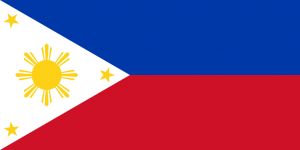Difference between revisions of "Language/Cebuano/Vocabulary/People-and-Family"
m (Quick edit) |
m (Quick edit) |
||
| Line 1: | Line 1: | ||
<span pgnav> | |||
{| class="wikitable pg_template_nav" | |||
|[[Language/Cebuano/Grammar/Wh-Questions|◀️ Wh-Questions — Previous Lesson]] | |||
|[[Language/Cebuano/Vocabulary/Food-and-Drinks|Next Lesson — Food and Drinks ▶️]] | |||
|} | |||
</span> | |||
{{Cebuano-Page-Top}} | {{Cebuano-Page-Top}} | ||
| Line 125: | Line 132: | ||
{{Cebuano-Page-Bottom}} | {{Cebuano-Page-Bottom}} | ||
<span pgnav> | |||
{| class="wikitable pg_template_nav" | |||
|[[Language/Cebuano/Grammar/Wh-Questions|◀️ Wh-Questions — Previous Lesson]] | |||
|[[Language/Cebuano/Vocabulary/Food-and-Drinks|Next Lesson — Food and Drinks ▶️]] | |||
|} | |||
</span> | |||
Revision as of 22:47, 2 April 2023
| ◀️ Wh-Questions — Previous Lesson | Next Lesson — Food and Drinks ▶️ |
Introduction
In this lesson, we will learn about common nouns related to people and family in Cebuano. Family is an important aspect of Cebuano culture, and by the end of this module, you will be able to identify and use various Cebuano words to describe members of a family and people in general. Understanding these words will help you hold conversations with locals and understand the nuances of Cebuano culture and daily life.
Vocabulary
Family Members
The table below contains common Cebuano words for family members:
| Cebuano | Pronunciation | English |
|---|---|---|
| Nanay | [na-nay] | Mother |
| Tatay | [ta-tay] | Father |
| Lolo | [lo-lo] | Grandfather (paternal) |
| Lola | [lo-la] | Grandmother (paternal) |
| Ama | [a-ma] | Grandfather (maternal) |
| Ina | [i-na] | Grandmother (maternal) |
| anak | [a-nak] | Child |
| bata | [ba-ta] | Child |
| ate | [a-te] | Older sister |
| kuya | [ku-ya] | Older brother |
| imoaw | [i-mo-aw] | Younger sister |
| himuaw | [hi-mu-aw] | Younger brother |
| paryente | [par-yen-te] | Relative |
Note that in Cebuano, the words for grandfather and grandmother differ depending on whether they are paternal or maternal. Nanay and Tatay are the more common terms for mother and father, respectively. Bata (meaning child) may be used to refer to a boy or girl, while ate and kuya are used specifically for referring to older siblings. Meanwhile, imoaw and himuaw are used for younger siblings.
Here are some example sentences:
- Si Nanay nagluto sa adlaw nga tuesday. (Mother cooked on Tuesday.)
- Si Tatay nagdumala sa mga anak paingon sa simbahan. (Father took the children to church.)
- Nadunggan nila ang Lola ug Lolo nga nagkasinabtanay. (They heard their grandparents talking to each other.)
Friends and Neighbors
Equally important are the words for friends and neighbors, which are used frequently in conversation. Below are the common Cebuano words for these:
| Cebuano | Pronunciation | English |
|---|---|---|
| amigo/amiga | [a-mi-go/a-mi-ga] | friend |
| higala | [hi-ga-la] | friend |
| agalon | [a-ga-lon] | neighbor |
| silingan | [si-ling-an] | neighbor |
In Cebuano, amigo and amiga are Spanish loan words and are often used interchangeably with higala.
Here are some example sentences:
- Siya akong suod nga higala. (He is my close friend.)
- Palihug, unsa man imong ngalan, agalon? (Excuse me, what's your name, neighbor?)
- Mga silingan lang mi niya sa among balay. (We are just neighbors in the same household.)
Exercises
- Translate the following sentences from English to Cebuano:
- My sister is older than me.
- I have three children.
- The neighbor's dog is barking.
- Practice using the words you've learned in sample sentences of your own creation.
Conclusion
In this lesson, you have learned about common Cebuano words related to people and family, and have practiced using them in sentences. Remember to take note of the differences in terminology when referring to family members based on whether they are paternal or maternal. With practice, you will become more comfortable using these words in conversation, and you will be one step closer to being able to hold a fluent conversation in Cebuano.
Other Lessons
- Food and Drinks
- Shapes
- Cardinal Numbers
- How to say Good Bye?
- Geography
- Telling Time
- Common Adjectives
- Feelings and Emotions
- Colors
Sources
| ◀️ Wh-Questions — Previous Lesson | Next Lesson — Food and Drinks ▶️ |
